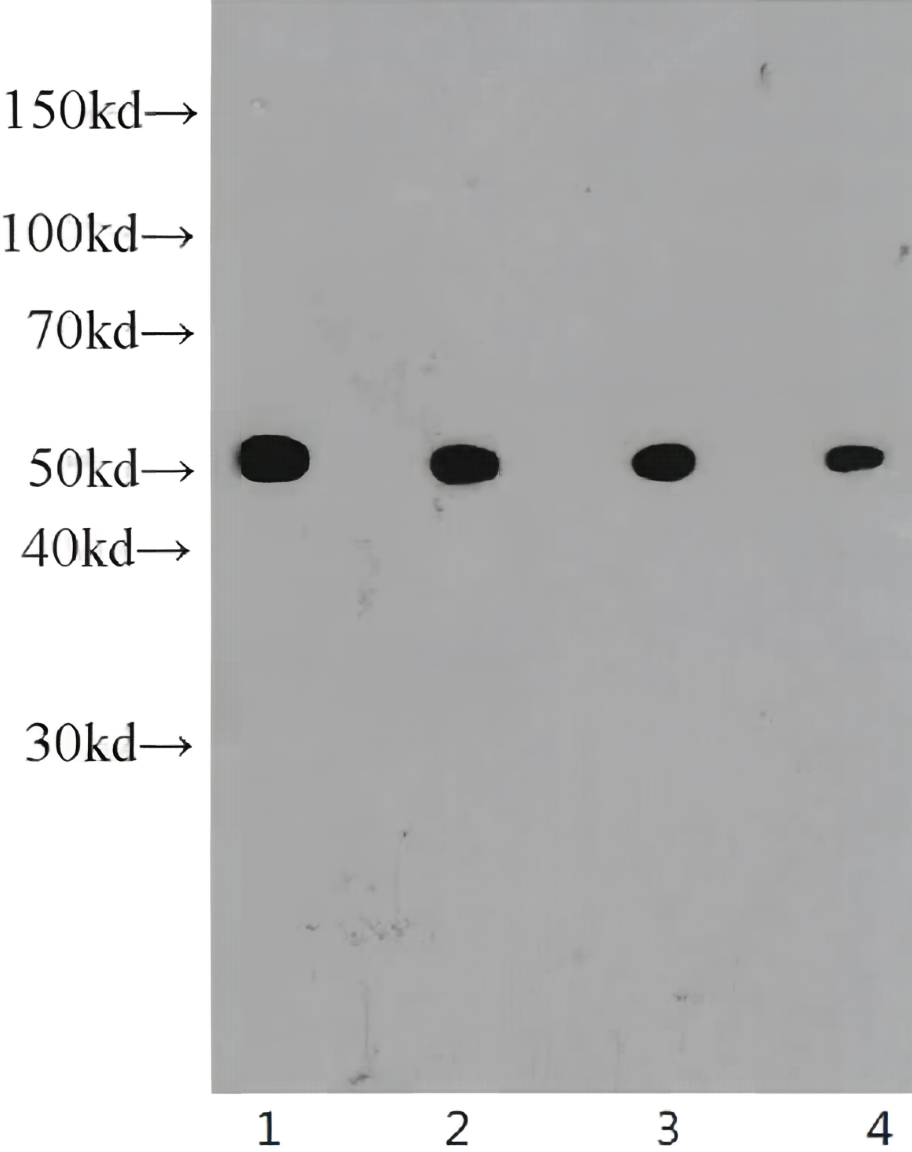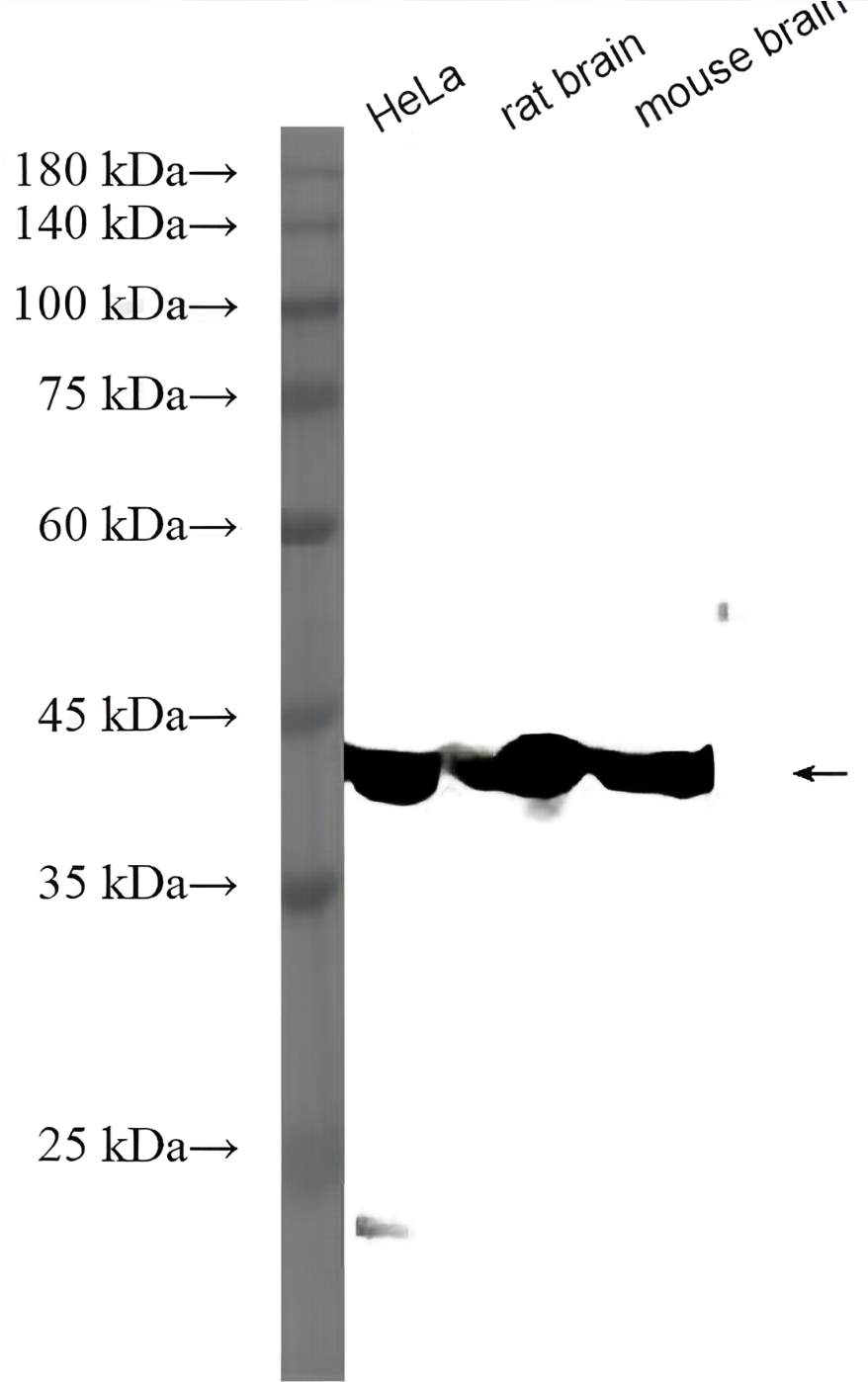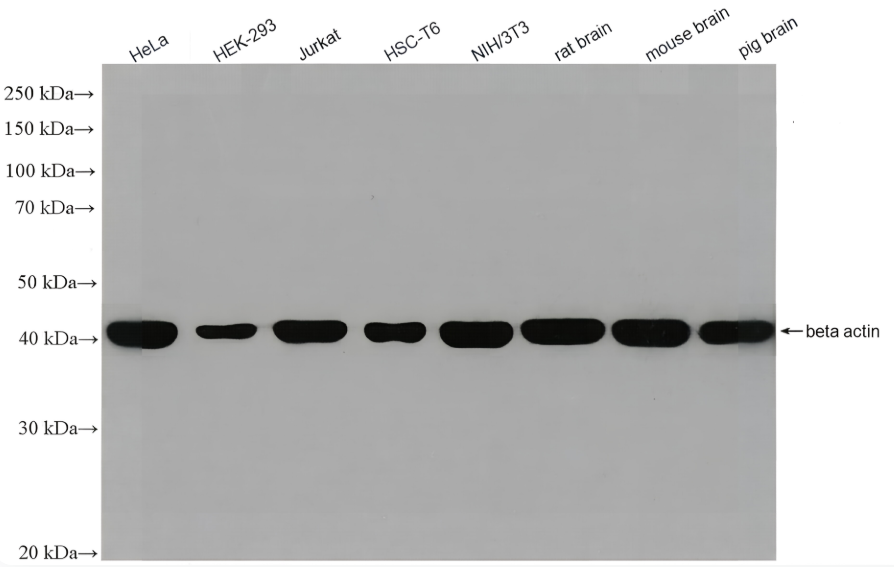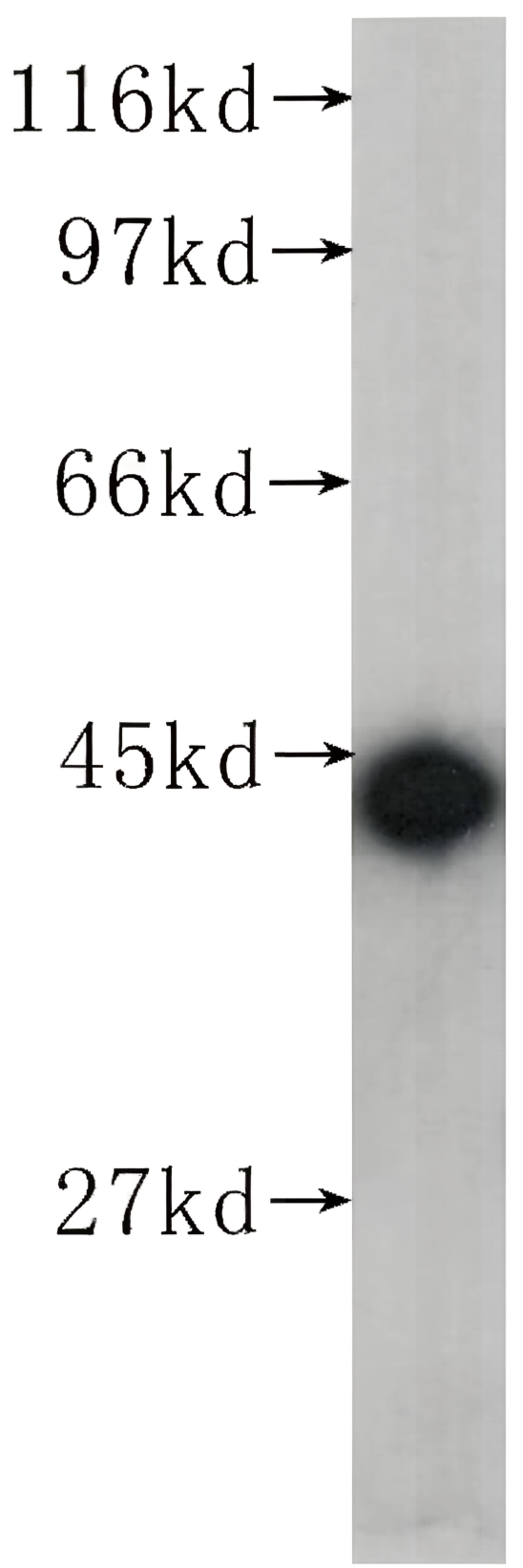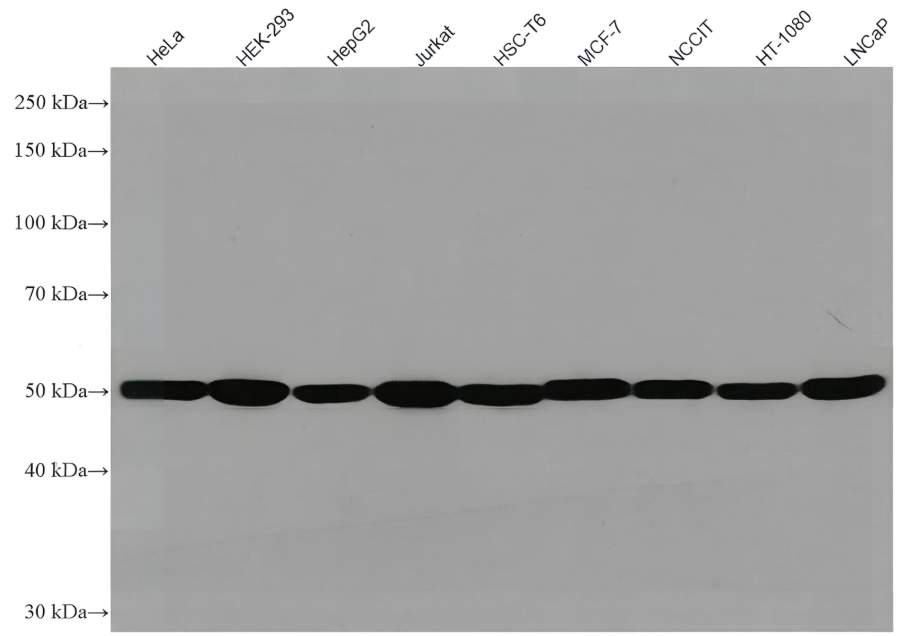DOG1 Rabbit Monoclonal Antibody(ARB943)
CAT.NO. : ARB6735
RMB Please choose
RMB Please choose
Size:
Trail, Bulk size or Custom requests Please contact us
*产品价格可能会有所调整,请以品牌方官网实时更新的价格为准,以确保准确性。
Background
DOG1 is a calcium-dependent chloride channel protein that is encoded by a gene called TMEM16A (TMEM16 FLJ10261, ANO1, ORAOV2, and AOS2) located on chromosome 11q13. DOG1 has many significant functions such as regulation of the cholinergic activity of gastrointestinal smooth muscle and regulation of both the survival and proliferation of cells.
DOG1 is detected in gastrointestinal Cajal cells, acinic cells in salivary glands (apical membraneous staining, particularly in serous cells), pancreatic centroacinar cells, liver cells, and epithelium of biliary tract, breast, stomach, and prostate. More than 90% of all gastrointestinal stromal tumors (GISTs) are DOG1 positive, irrespective of cKit mutation and CD117 positivity. The staining pattern varies from cytoplasmic to membranous, with usually strong, diffuse intensity.
DOG1 is an important marker in the identification of GIST together with CD117, slightly more sensitive (particularly in gastric GIST without c-kit mutation) and also more specific than CD117. DOG1 is also useful in the classification of salivary carcinomas, and pancreatic and renal tumors.
DOG1 is detected in gastrointestinal Cajal cells, acinic cells in salivary glands (apical membraneous staining, particularly in serous cells), pancreatic centroacinar cells, liver cells, and epithelium of biliary tract, breast, stomach, and prostate. More than 90% of all gastrointestinal stromal tumors (GISTs) are DOG1 positive, irrespective of cKit mutation and CD117 positivity. The staining pattern varies from cytoplasmic to membranous, with usually strong, diffuse intensity.
DOG1 is an important marker in the identification of GIST together with CD117, slightly more sensitive (particularly in gastric GIST without c-kit mutation) and also more specific than CD117. DOG1 is also useful in the classification of salivary carcinomas, and pancreatic and renal tumors.
Application
|
Application |
Dilution Ratio |
|
IHC |
1:100 - 1:200 |
Overview
|
Predicted Molecular Wt |
14kDa |
|
Species Cross-reactivity |
Human |
|
Applications |
IHC-P |
|
Purity |
ProA affinity purified IgG |
|
Form |
Liquid |
|
Swissprot ID |
Q5XXA6 |
|
Subcellular location |
Membrane/Cytoplasm |
|
Recommended method |
Heat induced epitope retrieval with Tris-EDTA buffer (pH 9.0), primary antibody incubate at RT (18℃-25℃) for 30 minutes |
|
Immunogen |
Synthetic peptide corresponding to DOG1 residues within aa1-100 of DOG1 was used as an immunogen |
|
Storage Buffer |
PBS 59%, Sodium azide 0.01%, Glycerol 40%, BSA 0.05% |
Data
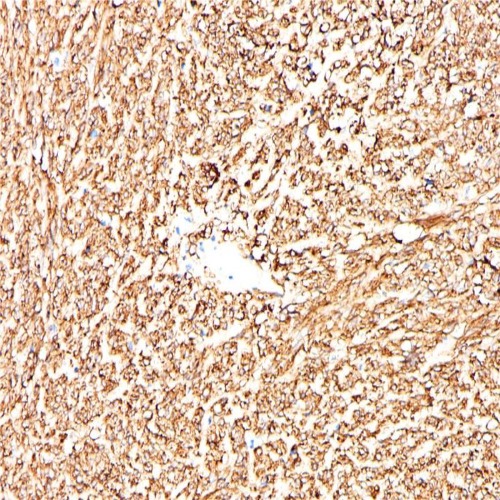
Immunohistochemical staining of human gastrointestinal stromal tumor tissue using DOG1 Rabbit Monoclonal Antibody(ARB943)
Storage
Store at -20°C. Stable for one year from the date of shipment.
Research Use Only
For Research Use Only. Not for use in diagnostic procedures.
 New Products
New Products







